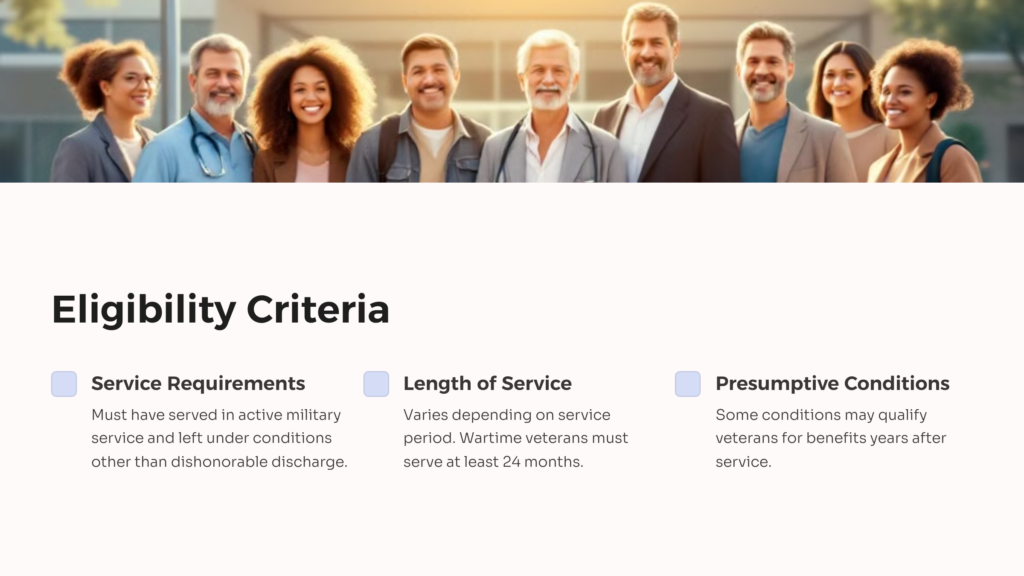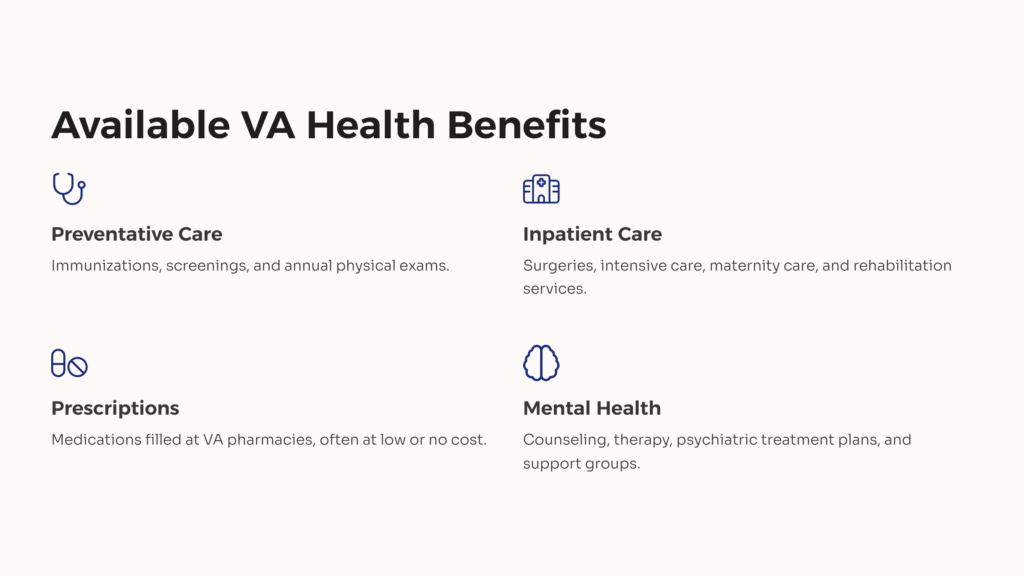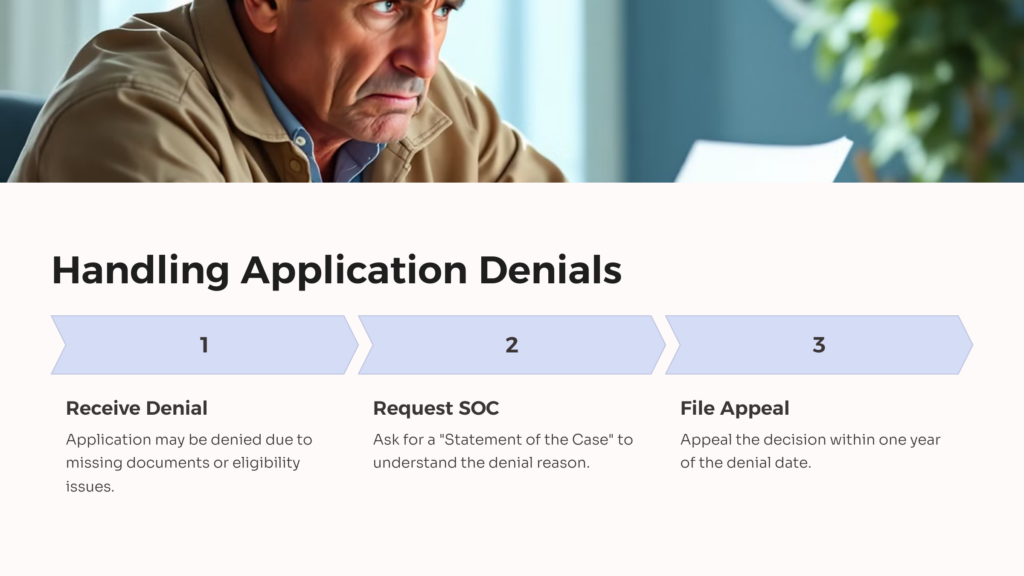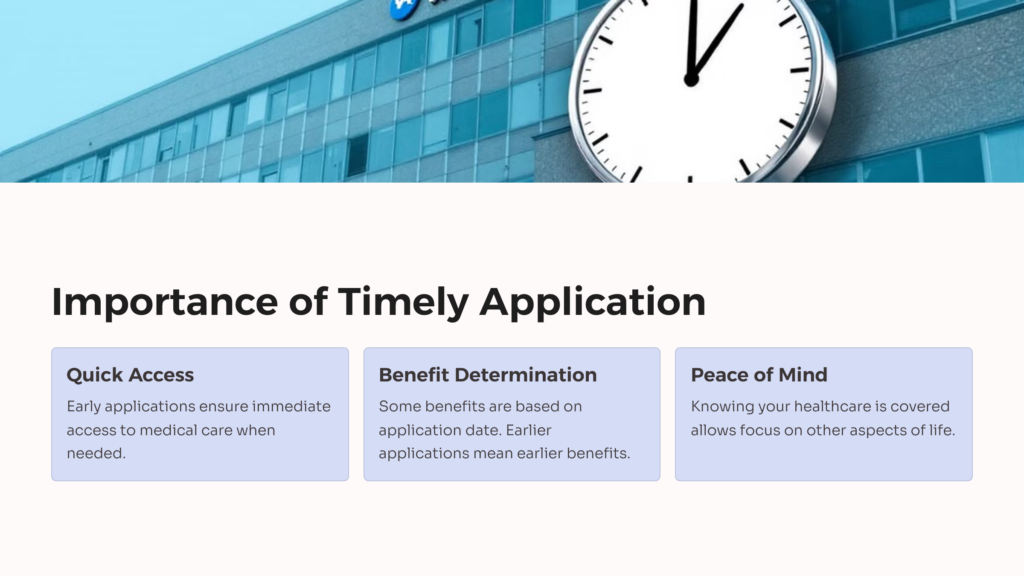The Veterans Health Administration (VHA), part of the Department of Veterans Affairs, provides comprehensive healthcare services to eligible military veterans in the United States. VA health benefits are a form of assistance, ensuring those who have served our nation can access the medical services they need. This article aims to shed light on the eligibility criteria, the range of benefits available, how to apply for these benefits, and steps to take if your application is denied. The importance of applying, success stories illustrating the benefits reaped by veterans through this service, and available resources will also be discussed.
I. Eligibility Criteria

To qualify for VA health benefits, veterans must meet certain service requirements. Generally, an individual must have served in active military service and left under any condition other than dishonorable discharge. The length of service requirements varies depending on the period in which an individual served. For instance, veterans who served during wartime must have served for at least 24 months or for the full period for which they were called to active duty.
Many veterans may not be aware that they could be eligible for these benefits even several years after their service has ended. The VHA recognizes certain presumptive conditions, which may make a veteran eligible for benefits even several years post-service.
II. Available VA Health Benefits

The VA health benefits encompass comprehensive healthcare services across various categories. These include preventative care services, inpatient hospital care, outpatient services, mental health care, prescription medications, and even long-term care in certain cases. Preventative care covers immunizations, screenings, and annual physical exams aimed at early detection and proactive health maintenance. Inpatient hospital care provides veterans access to VA medical centers for surgeries, intensive care, maternity care, and rehabilitation services. Outpatient services offer appointments and procedures that do not require overnight admission such as dental cleanings, wound care, lab tests, dialysis, and imaging scans. Mental health care is also covered which gives veterans access to counseling, therapy, psychiatric treatment plans, and support groups. Prescription medications ordered by VA providers are filled on-site at VA pharmacies often at low or no cost to the veterans. For veterans in need of daily assistance, the VA pays for long-term care services like nursing home care and even some in-home nursing and therapy. As veterans age or develop complex conditions, their healthcare needs change, so the VA continually evaluates utilization metrics and feedback to expand available specialties, update formularies, extend care to rural areas via telehealth, enhance wellness promotion efforts, and streamline the claims and appointment processes to improve veterans’ access to timely, high-quality care.
It’s important to keep abreast with these changes as what might not have been available before could become accessible now. Regular updates could be found on the VHA website or through direct communication channels provided by the VA.
III. How to Apply for VA Health Benefits
A. Understanding Your Benefits
Before applying for VA health benefits, it’s essential to understand the availability of benefits and how they apply to your specific circumstances. The benefits provided vary considerably, depending on factors like disability rating, service history, income level, and even specific healthcare needs and requirements.
Veterans with certain conditions resulting from service, such as exposure to Agent Orange or prisoners of war, may be entitled to additional benefits. Understanding all these specifications can guide you in making an application tailored to your situation.
B. Preparing the Necessary Documents
When applying, you must present certain documents, including your discharge or separation papers (DD214 or equivalent), proof of service (if necessary), and medical evidence (also if necessary), among others.
These documents form the backbone of your application. Aside from validating your service, they provide critical information about your circumstances, health needs, and eligibility, all of which will determine the benefits you can access. Ensuring you have the proper documentation ready when applying will streamline the process and prevent unnecessary delays. Be sure to make copies of anything you submit and keep thorough records. If you are missing any required documents, contact the Department of Veterans Affairs, archives, or your branch of service to obtain replacements prior to submitting your claim. Having complete and accurate paperwork from the start gives your application the best chance for swift approval.
C. Applying Online, In Person, or By Call
Once your documents are ready, you can apply online through the eBenefits website. This platform allows veterans to fill out an online application form, attach necessary documentation, and submit everything for review.
Alternatively, you can apply in person at a VA healthcare facility or by calling 1-877-222-VETS (8387). Both these methods allow for personal assistance during the application process, which can be particularly helpful for those who are unsure or need additional guidance.
IV. What to Do if Your Application is Denied

Sometimes, applications might get denied due to various reasons including missing documents or failure to meet certain eligibility criteria. If this happens, veterans have the right to appeal the decision within one year from the date of denial.
Understanding why an application was denied is crucial to making a successful appeal. Veterans can request a “Statement of the Case” (SOC) to understand the reason behind the decision so they can respond effectively.
V. The Importance of Timely Application

Applying as soon as possible for VA health benefits is imperative. Earlier applications ensure that veterans can access medical care and support when required without any delays.
It’s also worth noting that certain benefits, such as disability compensation, are determined based on the date of application. Therefore, the earlier you apply, the earlier your benefits could potentially begin.
VI. Success Stories: Veterans Using VA Health Benefits
Several veterans have greatly benefited from the VA health benefits. For example, John, a Vietnam War veteran, was able to secure treatment for Post Traumatic Stress Disorder (PTSD) and a heart condition he developed years after his service.
Likewise, Susan, an Iraq war veteran, found invaluable support through the VA for her physical injuries and mental trauma. She also utilized the VA’s vocational rehabilitation and employment services to transition to civilian work successfully.
Conclusion
The VA health benefits are a vital lifeline for many veterans providing comprehensive healthcare services. They are designed to honor and recognize the sacrifices veterans have made. This understanding should propel every eligible veteran towards applying promptly and making the most of these benefits.
VII. Resources and Assistance
Even with this guide, navigating the VA health benefits application process can be a challenge. Fortunately, numerous resources can assist throughout the process. Organizations like Veterans Service Organizations (VSOs), County Veteran Service Officers (CVSOs), and VA-approved attorneys can provide expert help.
Veterans can also engage with the VA directly through their helpline or seek assistance from fellow veterans, many of whom are well-versed in navigating the VA system.
Overall, the aim is to ensure every veteran has the best chance to access the benefits they rightfully deserve.
 AllVeteran.com Advisors
AllVeteran.com Advisors
With expertise spanning local, state, and federal benefit programs, our team is dedicated to guiding individuals towards the perfect program tailored to their unique circumstances.


















